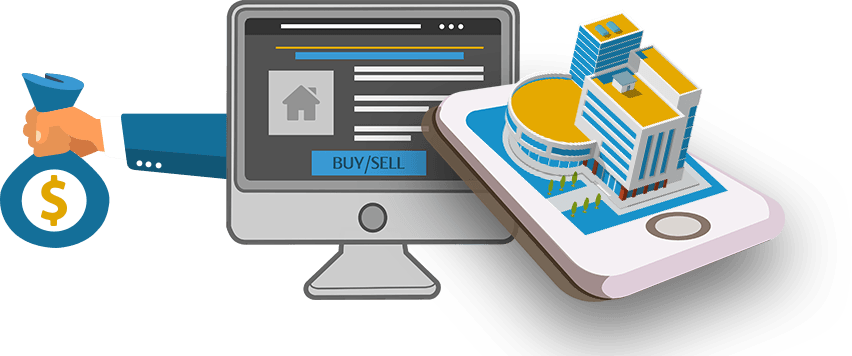Managing properties is no easy feat, with a myriad of challenges that can eat into your profits. If you’re ready to propel your property management to unprecedented heights and slash unnecessary expenses, it’s time to embrace the remarkable power of property management software.
By embracing this innovative solution, you’ll gain access to a multitude of benefits, including streamlined tenant screening process, income tracking, precise expense management, efficient maintenance scheduling, and seamless tenant communication.
Allocating time for strategic planning and growth
Property management software empowers landlords to effectively manage their time by prioritizing strategic planning and fostering growth in their property management endeavors. By harnessing the capabilities of this advanced technology, landlords can streamline operations and create opportunities for critical decision-making and expansion.
One of the key advantages of property management software is its ability to automate repetitive tasks and optimize administrative processes. By automating activities such as tenant background check, rent collection, maintenance requests, and lease management, landlords can save valuable time and redirect their focus towards strategic planning and growth-oriented initiatives.
Through property management software, landlords gain access to real-time data and analytics, providing valuable insights into property performance, financial trends, and market dynamics. Armed with this information, landlords can make informed decisions to optimize their property portfolio, identify growth opportunities, and enhance overall profitability.
The software’s centralized database allows landlords to efficiently organize and manage property-related information, including lease agreements, tenant records, and maintenance histories. This eliminates the need for manual record-keeping and enables quick access to critical data when making strategic decisions.
Screening potential tenants with background checks
Property management software offers landlords an effective solution to streamline tenant screening processes and reduce expenses through thorough background checks.
Landlords can access comprehensive databases that provide detailed information on prospective tenants that are searching for apartments for rent, including credit history, criminal records, eviction records, and employment verification. The software’s automated screening process saves time and ensures consistent evaluation of applicants.
By utilizing property management software for tenant screening, landlords can identify potential red flags and make well-informed choices. Thoroughly screening potential tenants helps minimize the risk of non-payment, property damage, and disruptive behavior, thereby reducing expenses associated with evictions and property repairs.
Moreover, the software’s integrated screening features assist landlords in complying with legal requirements and regulations. It ensures a fair and unbiased screening process for all applicants, eliminating the risk of discriminatory practices.
Tracking lease terms and conditions
Property management software equips landlords with a powerful tool to efficiently track and oversee lease terms and conditions, leading to cost-cutting measures and improved financial management.
One of the primary advantages of utilizing property management software is its ability to centralize lease tracking processes. Landlords can securely store all lease documents in a digital platform, facilitating easy access and management of crucial lease terms and conditions. This eliminates the need for manual record-keeping and minimizes the risk of misplacing or losing important documents.
With the software’s automation features, landlords can set up reminders and notifications for key lease dates, such as renewals or rent adjustments. By proactively tracking lease terms and conditions, landlords can avoid costly oversights, such as missed opportunities for rent increases or delayed lease renewals that could result in potential financial losses or vacant properties.
Tracking rental income and occupancy rates
Property management software provides landlords with efficient solutions to track rental income and monitor occupancy rates, leading to expense reduction and improved financial management.
Landlords can easily record and organize rental payments, generate comprehensive income reports, and analyze rental trends over time. This allows for accurate financial evaluation, enabling landlords to identify opportunities for maximizing rental income and minimizing expenses.
Furthermore, the software enables landlords to monitor occupancy rates effectively. By tracking tenant move-ins, move-outs, and vacancies, landlords can assess property performance and identify areas for improvement. This information empowers landlords to take proactive measures, such as targeted marketing campaigns or rental rate adjustments, to optimize occupancy rates and minimize income loss due to vacancies.
Identifying underperforming properties for optimization
By analyzing the data provided by property management software, landlords can identify properties that are not meeting expectations and require attention. These properties may exhibit high vacancy rates, low rental income, or excessive maintenance costs. Armed with this knowledge, landlords can develop targeted strategies to optimize these properties, reduce expenses, and drive improved performance.
Furthermore, the software’s financial analysis tools enable landlords to assess the return on investment (ROI) for each property. By evaluating financial indicators such as cash flow, cap rate, and net operating income (NOI), landlords can gauge the profitability of their properties and identify areas for enhancement.
Empowered by the insights gained from property management software and by using other useful landlord tools, landlords can proactively implement optimization strategies. This may involve adjusting rental rates, refining marketing strategies, improving property maintenance, or renegotiating service contracts. By taking proactive measures, landlords can effectively cut expenses, boost property performance, and increase overall profitability.





